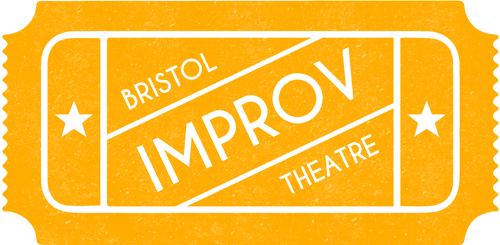Here is our director’s action plan, based on the Access Needs Survey:
Our next step is to find funding to pay Disability Inc, part of the West of England Council for Independent Living, to conduct an audit of the building and create a report. This will become the starting point, alongside the survey responses, for making further changes – especially where we need to fundraise to make those changes.
We know that we will need to find funding to make the biggest material changes, especially physical changes to the building. These include:
- Step-free access, most likely a ramp into the building
- Sound dampening in the bar and class spaces
- HEPA air purifiers/ UV filtration system in theatre and class spaces
- A ramp onto the bar stage
- A rail and lighting for the outside stairs
- Updating our website or replacing it to simplify and fix problems, and put in place more accessibility features
- Making the disabled toilet, which is currently not in use, fit for purpose and open for use
There are some changes that are already underway, as they could be made by our existing staff in their day-to-day roles:
- Asking for access needs information for classes at the point of booking
- Reminding students not to attend class if they may have COVID, in line with our existing guidance on not attending class when ill.
- Ensuring that students know they can approach our Instructors to find accommodations for any exercises inaccessible
- Reinforcing the message in classes that people don’t need to engage in exercises that they find inaccessible, making sure they know they can ask for support or alternatives, and that they can adapt how they take part to look after their own needs.
- Reinforcing the message in classes that people can choose alternatives to grounding and warm-ups if they find the Instructor’s preferred approach inaccessible
- Increased messaging to inform students about our payment support schemes: the Pay It Forward fund and the option to pay for courses by instalments
- Providing visual aids using a whiteboard or handouts to support different learning styles and memory prompts
- Creating a process for ticket holders to reserve seats if it will help with an access need, such as the front row for people who find the stairs difficult.
- Reminding performers they need to be loud enough to be heard by everyone – training them to project their voices and make themselves heard.
- Fixing the upstairs toilet locks
- Creating a process for one of our parking spaces at the rear to be booked by the public in cases where it will support an access need.
- Not using coloured lighting in situations where visibility is important (ie art class or show)
We found from the responses that there are lots of potential changes we can make to how classes are run, and we will explore these with our Instructors. Some of these changes will require further training for our Instructors to ensure they are confident to support students’ additional needs, and to ensure we are following “best practice” on safeguarding for vulnerable adults.
- Training and advising Instructors on offering alternatives or adaptations to exercises for students who request them
- Further training for our Instructors on supporting students with additional needs, teaching classes with mixed or even conflicting needs. Recruiting new instructors or training up existing staff to manage the implementation of these changes.
- Reviewing and refreshing course materials with expert input to include adaptations that can be implemented for students who have accommodation needs around specific impairments – in particular neurodivergence, cognitive overload and mobility.
Our Director is currently exploring the possibility of the following as well:
- Finding funding for a paid role to implement improving all types of access across the theatre’s operations
- Finding the budget to pay the (currently voluntary) Disability Access Working Group, and or a reward scheme for participants
- Putting on shows that require the audience to be masked to improve access for immune compromised people: working with people directly on how these events could be as safe as possible. Determining how frequent these shows could be based on audience numbers (or finding external funding to subsidise smaller audiences)
- Putting systems in place to ensure everyone feels welcome at the jam, as well as managing expectations on how the jam runs (ie, we prioritise getting more people the opportunity to get on stage over how long they get on stage)
Lastly, there are some areas where we will need to engage with the council to work for permissions, or for work that we need to ask the council to undertake:
- Clearer signage outside (permission needed as the front façade of the building is listed)
- An accessible parking space on the public roads
- Ensuring the dropped kerbs closest to the building are usable
- Crossings that would make the journey from the nearest bus stop easier (the bus stop is directly across the road, but there is no crossing and the kerb for the bus is very high)
- Putting on BSL interpreted shows and training event staff in key BSL phrases to allow them to understand and respond to simple queries in BSL.
This article is part of a series of responses; stay tuned for more updates.
The Bristol Improv Theatre would like to thank the theatre’s Disability Advisory Working Group, made up of volunteers from our community with lived experience of Disability, for their time and support in creating and reviewing the Access Needs Survey.
